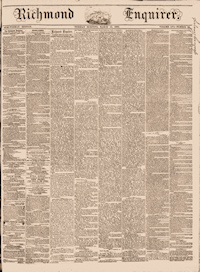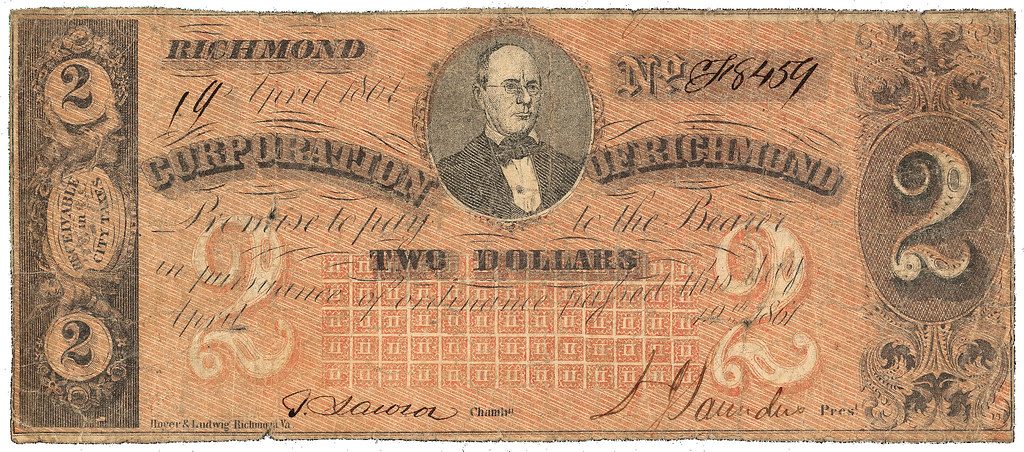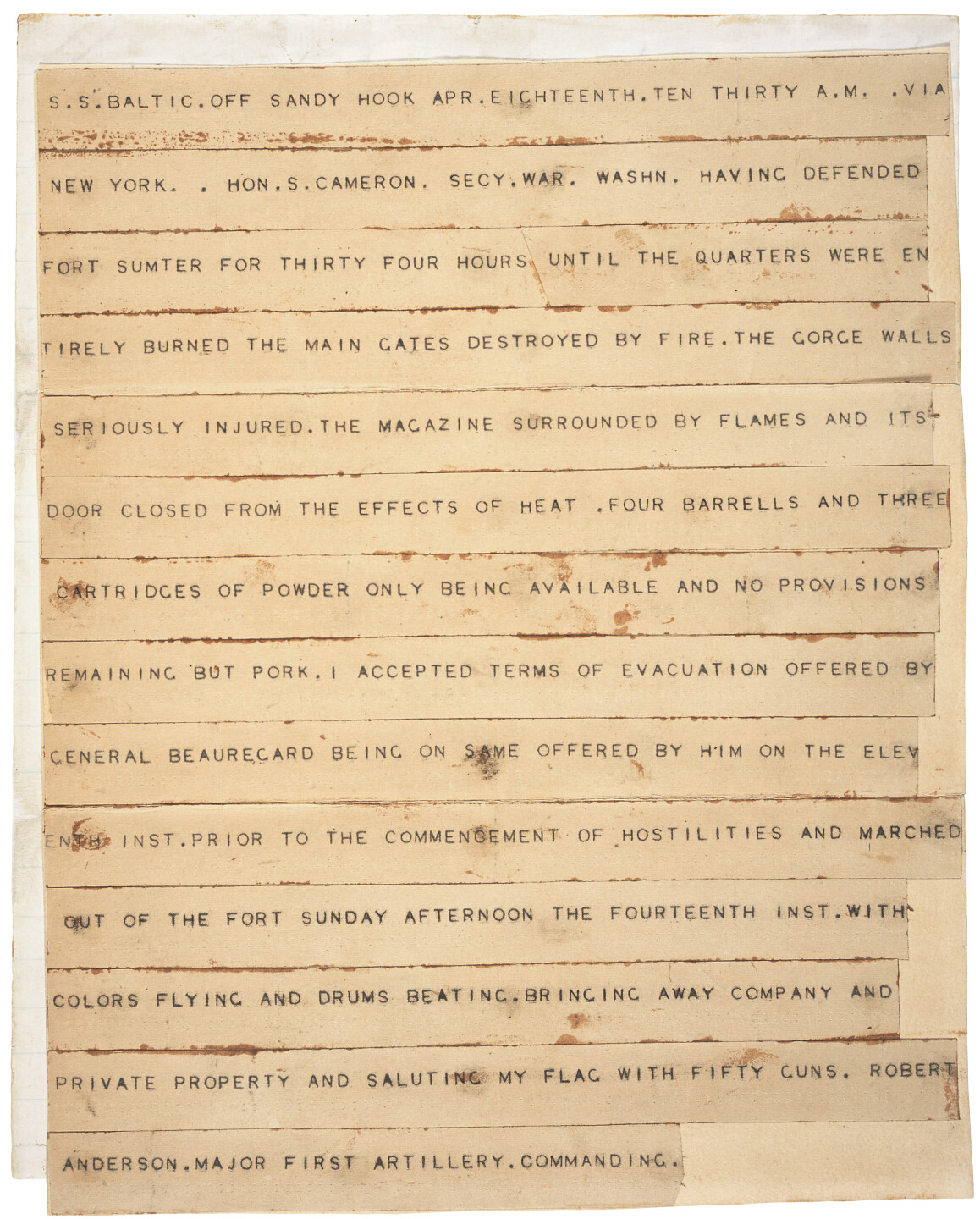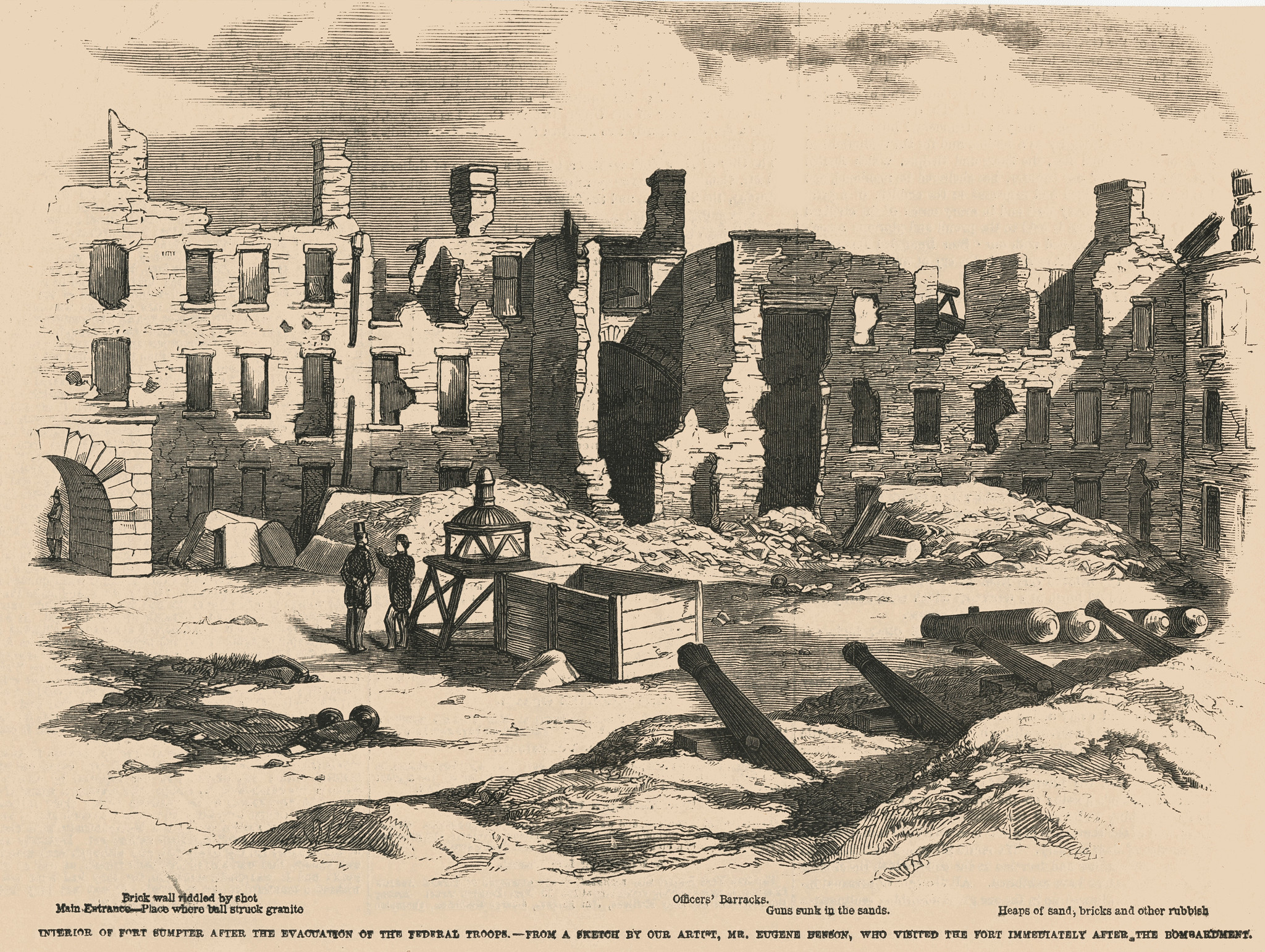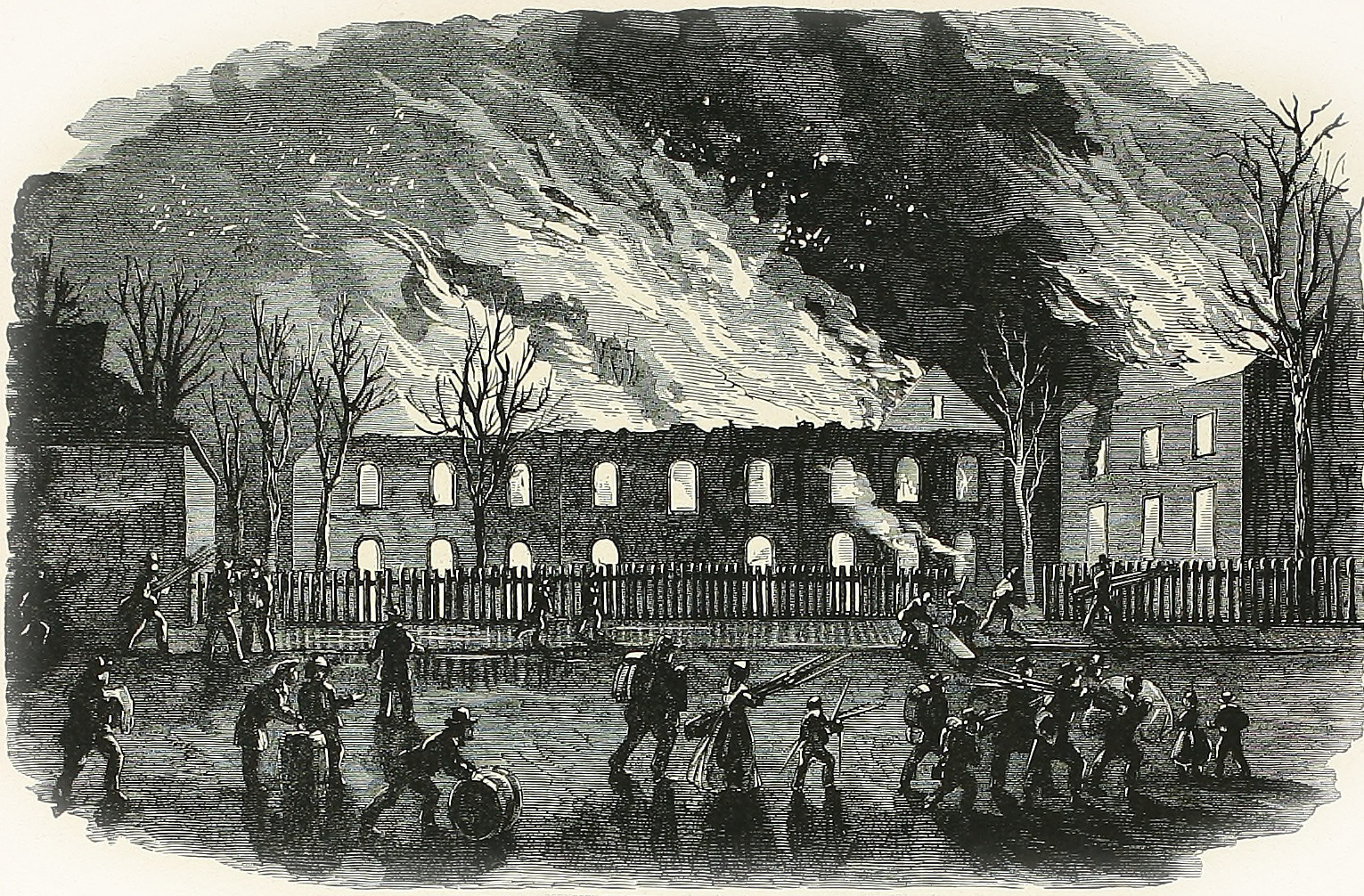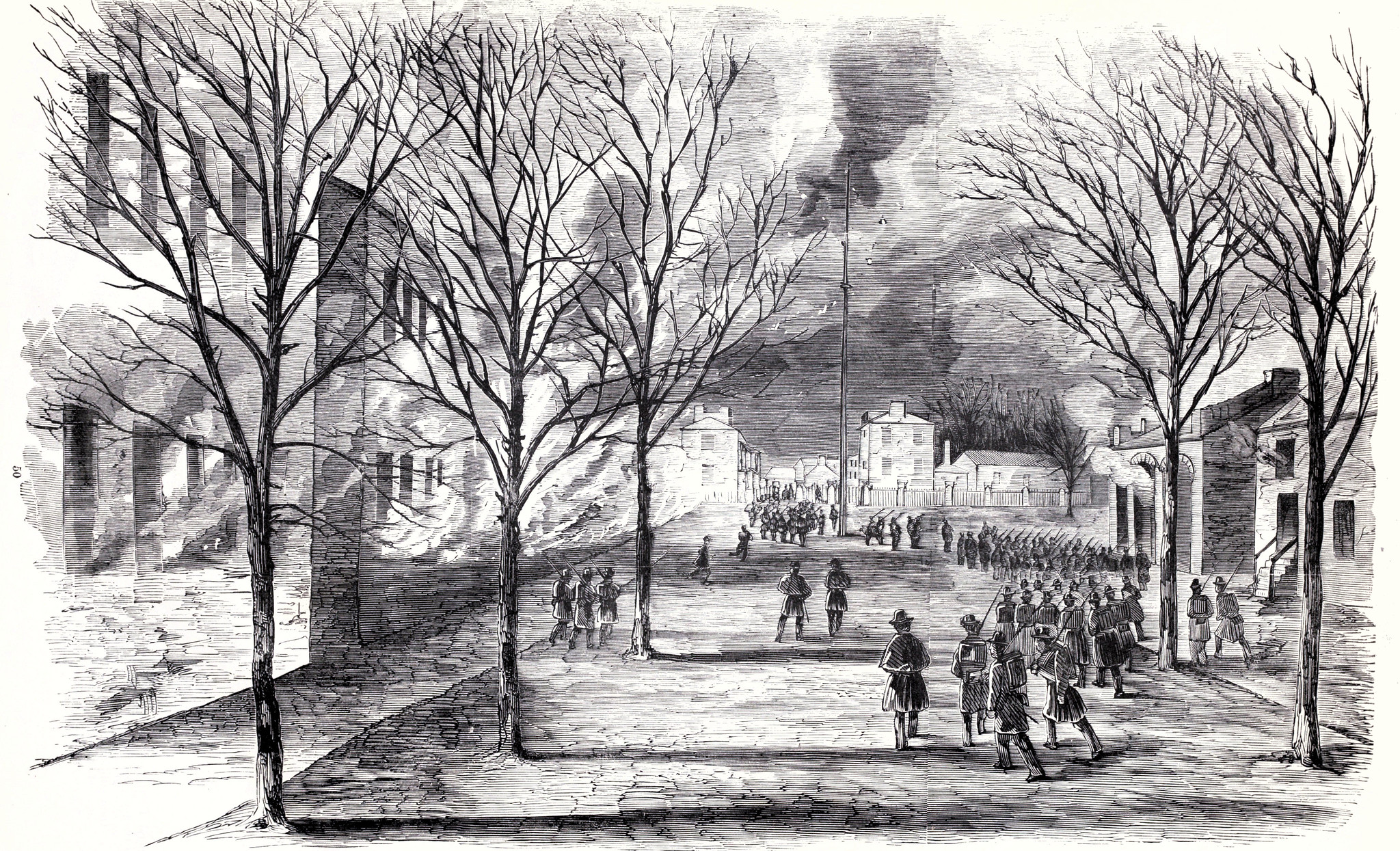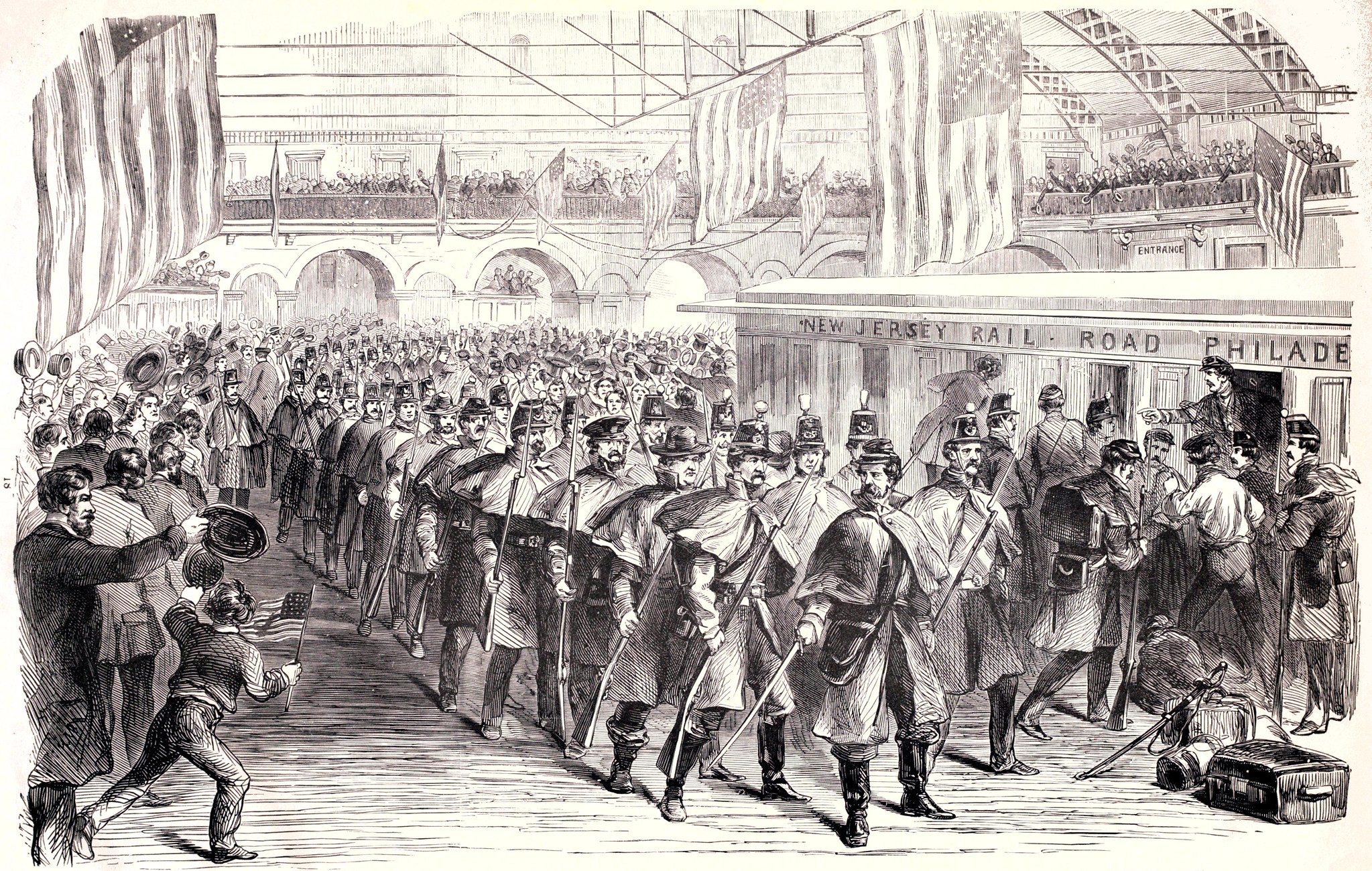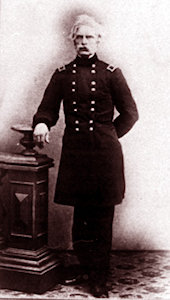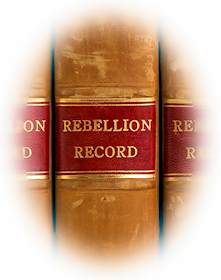–Governor Harris, of Tennessee, replies to President Lincoln’s call for two regiments of troops, by saying that “Tennessee will not furnish a single man for coercion, but fifty thousand, if necessary, for the defence of our rights or those of our Southern brothers.” –Louisville Democrat, April 21.
–Governor Jackson, of Missouri, answers Secretary Cameron by telling him that his “requisition is illegal, unconstitutional, revolutionary, inhuman, diabolical, and cannot be complied with.” Missouri won’t furnish a single man for such an unholy crusade.–Charleston Mercury, April 19.
–John Bell, Niell S. Brown, Bailie Payton, and eight other citizens of Tennessee, issued an address calling upon the people of that State to maintain a position of independence in the present struggle, taking sides with the union and peace of the country against all assailants, whether from the North or the South.–(Doc. 61 ½.)
–The Common Council of Boston appropriated $100,000 to provide for soldiers enlisting from Boston. The Lowell city government appropriated $8,000 for soldiers’ families.– Boston Journal.
–At Xenia, Ohio, $14,000 were subscribed to aid the volunteers. At noon Captain Tripp’s company of one hundred men left Mount Vernon, Ind., for Indianapolis. –Louisville Democrat, April 21.
–The National Union, published at Winchester, Ky., says: “Mark, now, what we say: any attempt on the part of the Government of this State, or of any one else, to put Kentucky out of the Union by force, or using force to compel Union men in any manner to submit to an ordinance of secession, or any pretended resolution or decree, arising from such secession, is an act of treason against the State of Kentucky.
“It is, therefore, lawful to resist any such ordinance. We hope that we are now fully understood thus far.”
A meeting at Chicago, Illinois, called for the purpose of sustaining the Government, was the largest and most enthusiastic ever held in the city. Speeches were made by prominent gentlemen of both parties. Stirring resolutions were adopted. $6,000 were subscribed for the support of the volunteers until taken charge of by the State.–Free Press.
–The banks in Trenton, N. J., Chicago, Ill., Portland, Me., subscribed in support of the Federal Government. A meeting of the officers, representing all the Boston (Mass.) banks, was held this morning, when resolutions were adopted to loan the State of Massachusetts 10 per cent. on their entire capital for the defence of the Government. The capital of the Boston banks amounts to $38,800,000.–Boston Transcript.
–At Pittsburgh, Pa., an intense war feeling prevails. Business is almost suspended. Immense crowds throng all the prominent streets, flags are floating everywhere, and the volunteer companies are all filled and departing eastward. Liberal subscriptions are being made for the comfort of volunteers and the support of their families. Recruiting is still going on, although there are more than enough for the requirements of the State to fill the Federal requisition. A Committee of Public Safety held a meeting to-day, and organized. A large quantity of powder which had been sent down the river, was intercepted at Steubenville, it being feared it would fall into the hands of the Secessionists. Ropes were suspended by lamp-posts last night, by unknown persons, labelled “Death to traitors.” Some assaults have been made on persons who have expressed sympathy with the secessionists.–Philadelphia Press.
–Lieutenant Jones, United States army, in command at Harper’s Ferry with forty-three men, destroyed the arsenal at that place and retreated. He was advised that a force of 2,500 men had been ordered to take his post by Governor Letcher; and he put piles of powder in straw in all the buildings, and quietly waited the approach of the enemy. When his picket guard gave the alarm that 600 Virginians were approaching by the Winchester road, the men were run out of the arsenal and the combustibles fired. The people fired upon the soldiers, killing two, and rushed into the arsenal. All the works, munitions of war, and 15,000 stand of arms were destroyed.–(Doc. 62.)–Times, .April 21.
–There was an immense Union meeting at Louisville this evening. Speeches were made by Mr. Guthrie, formerly Secretary of the Treasury, the venerable Judge Nicholson, and others. Resolutions were unanimously passed, declaring that the Confederate States had commenced war with the Federal Government; that Kentucky is loyal to the Union; that Secession is not a remedy for an evil; that Kentucky will not take part against the Federal Government, but will maintain a neutral position.–(Doc. 63.)
–The Custom House and Post Office at Richmond were seized by order of the Governor. The New York packet steamer Jamestown was seized at City Point, sixty miles below Richmond, and a packet schooner belonging to Maine was taken at Richmond.–Herald, April 20.
–A seccesion flag was raised on Federal Hill, in Baltimore, and saluted with a cannon, when the workmen from foundries in the neighborhood rushed out and tore down the flag, and threw the cannon into the Patapsco.– Times, April 19.
–A letter from Baltimore to New York, under this date, says: “A serious disposition is manifested in certain quarters to obstruct the passage of Northern troops through the State.–Times, April 20.
–Governor Morgan, of New York, issued a proclamation calling for men to answer the President’s requisition.
–Major Anderson and his command arrived in New York from Charleston by the Baltic, and met with an enthusiastic reception from the people.–(Doc. 64.)–Herald, April 19.
–The Sixth Massachusetts regiment arrived in New York en route for Washington, and made a triumphal march through the city.–Ibid.
–The Governor of Maryland and Mayor of Baltimore issued proclamations, urging the people to keep the peace and avoid civil war. The Governor declared that no troops should be sent from the State, except for the defence of Washington.–(Doc. 65.)–Tribune, April 20.
–A mass meeting was held at Kingston, N. Y., to sustain the Government and defend the Union. John B. Steele presided. In his speech, on taking the chair, he said:
“It must never be supposed that the flag could be desecrated without touching the soul of every genuine American. No matter what it must cost, the Stars and Stripes must wave. But one heart beats here, and that is the true and loyal American heart.”
W. S. Kenyon and Theodore R. Westbrook also spoke. Mr. Westbrook said he laid aside all party lines, all party prejudices, all political opinions, and stood for his country alone. He loved his party; but, thank God, he loved his country better. He wasn’t going to stop to consider who was right or wrong; but, right or wrong, his country. He grasped the folds of the Stars and Stripes, and said, “Let it be known that in the nineteenth Century traitor hands and traitor hearts are found among as to disgrace that flag, which had been their shield and protection, as well as our own.” He asked God might record his vow to stand by, protect, and, if need be, die for that flag.
Speeches were also made by Erastus Cooke, G. H. Sharp, W. H. Romeyn, and Mr. W. Chipp.– Tribune, April 20.
